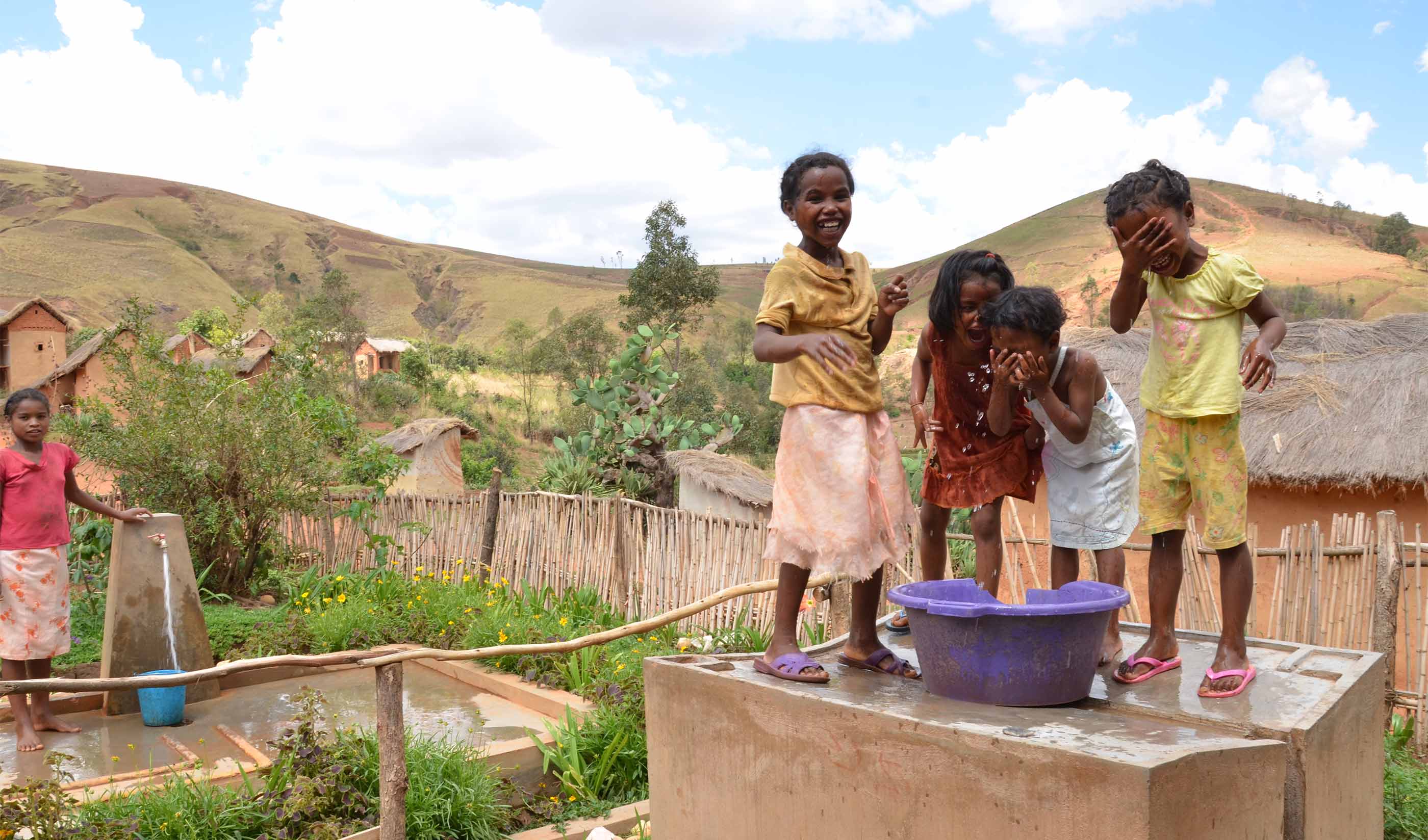

WaterAid is an international not-for-profit organisation fighting to make clean water, decent toilets and good hygiene normal for everyone, everywhere. We transform millions of lives every year. But why is this especially relevant to early childhood development? Access to water, sanitation and hygiene (WASH) is a prerequisite for a healthy child. Not only do WASH services benefit the immediate dignity and safety of the child and mother, they also provide long-term health, social and economic benefits.
Often the positive impacts of health interventions for children in one area are undermined by lack of WASH in another, for example:
Sustainable WASH services within households and communities, healthcare facilities and schools are fundamental basics underpinning almost every aspect of early childhood development. It is therefore essential that WASH services are considered a key component of early childhood programmes in order to support the development of a happy, healthy child and mother.
Improving cross-sectoral approaches to early childhood requires better sharing of experiences of integration. The case studies described below highlight where WaterAid is contributing to better integration of WASH into health and nutrition policies and programmes. We are using our experience to advocate for governments and donors to invest in integrated approaches which deliver improved and sustainable health outcomes for children.
In 2014, WaterAid supported Nepal’s Ministry of Health to launch a pilot project in four districts to incorporate hygiene promotion into immunisation programming. The sessions used games that build on emotional drivers of behaviour – such as nurture, affiliation, disgust and social status – in an aim to change norms in areas such as exclusive breastfeeding, handwashing with soap, food hygiene, faeces management, and treatment of water for milk. The sessions reached 38,000 caregivers through 2200 trained female community health volunteers.
An independent evaluation showed the intervention was effective in improving all key hygiene behaviours, from 2% during baseline to 54% after implementation. Prevalence of diarrhoea fell from 20% during baseline to 5% during the follow-up survey. The government is now aiming to scale-up this approach nationwide.
In Madagascar, nearly half of all children under 5 are stunted; almost half the population lack access to drinking water, and 90% to sanitation (WHO and UNICEF, 2017). An estimated 50% of undernutrition is associated with repeated diarrhoea, intestinal worms and other infections directly resulting from inadequate WASH (Prüss-Üstün et al., 2008). In response, the Government of Madagascar’s National Action Plan for Nutrition Phase III (2017–2021) sets out a multi-stakeholder, multi-sector approach to improve coordination mechanisms on WASH and nutrition, and align actions around a common results framework.
To reinforce and accelerate these national efforts, the Scaling Up Nutrition (SUN) Movement and the Sanitation and Water for All (SWA) Partnership have established a global partnership on Nutrition and WASH focused on advocacy, and identifying and sharing good practices. Partners, including WaterAid, have supported this effort by launching new advocacy reports, such as The Recipe for Success (WaterAid et al., 2017) and The Missing Ingredients (WaterAid and SHARE, 2016), which outline a toolkit for integration of WASH nutrition.
WaterAid is also one of the member organisations in the BabyWASH Coalition (babywashcoalition.org), which advocates for more integrated programming, policymaking and funding in the areas of WASH, early childhood development, nutrition, and maternal, newborn and child health.
References can be found in the PDF version of the article.
See how we use your personal data by reading our privacy statement.
This information is for research purposes and will not be added to our mailing list or used to send you unsolicited mail unless you opt-in.
See how we use your personal data by reading our privacy statement.